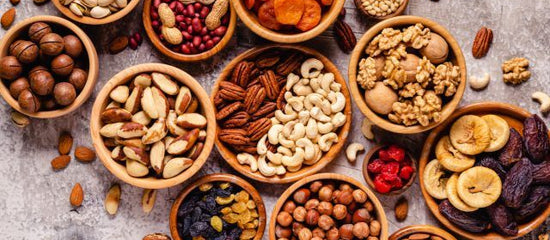Your cart is currently empty.
Why Eat Organic?
1. Support for Soil Health and Biodiversity
Eating organic is a commitment to healthier soil ecosystems. Organic farming avoids synthetic pesticides and fertilizers, allowing soil microbes and essential nutrients to flourish. This creates a balanced environment that fosters biodiversity, which is crucial for pollinators, beneficial insects, and other wildlife. By choosing organic, you’re directly contributing to the preservation of rich, living soil—a foundation for long-term food security.
2. Reduction of Toxin Accumulation
While many people focus on the avoidance of immediate pesticide exposure, a lesser-discussed concern is the bioaccumulation of toxins over time. Pesticides and chemicals used in conventional farming can build up in your body, possibly disrupting your endocrine system and affecting overall health. Organic food, being free from these harmful substances, minimizes this long-term risk and contributes to a cleaner, more balanced internal system.
3. Gut Health and the Microbiome Connection
Our gut health is intricately linked to our mental well-being and immune function. Studies suggest that organic food, which is free from chemical additives, helps maintain a diverse and healthy gut microbiome. Additionally, organically grown crops are often richer in certain nutrients and antioxidants, which can further support gut health by providing nourishment to beneficial bacteria.
4. Reducing Antibiotic Resistance
Conventional agriculture often relies on antibiotics to promote animal growth and prevent disease in overcrowded conditions. This practice contributes to the development of antibiotic-resistant bacteria, a major global health crisis. By choosing organic, which prohibits routine antibiotic use, you’re playing a role in combating this threat and advocating for more humane and sustainable animal rearing practices.
5. Water Conservation and Quality
Organic farming reduces water contamination. Chemicals from conventional farms can run off into water bodies, affecting aquatic life and contaminating drinking water sources. By supporting organic agriculture, you help protect vital water resources and promote cleaner waterways for future generations.
6. Impact on Mental Well-being
The concept of “food as medicine” extends beyond physical health. Many people report feeling a greater sense of mental well-being and connection to nature when they consume organic food. The practices used in organic farming, which emphasize care for the land and humane treatment of animals, resonate deeply with values of environmental stewardship and mindfulness, promoting a sense of holistic wellness.
7. Ethical and Societal Impact
Choosing organic isn’t just about health—it’s about ethics and supporting a fair agricultural system. Organic farms are often smaller, family-run operations that rely on sustainable and regenerative practices. By choosing organic, you empower these farmers, support better working conditions, and contribute to the resilience of rural communities.
8. Protecting Future Generations
One often-overlooked aspect of eating organic is the intergenerational impact. The harmful chemicals used in conventional farming can persist in the environment and have unknown effects on future generations. Supporting organic agriculture is an investment in a cleaner, healthier world for our children and grandchildren.




